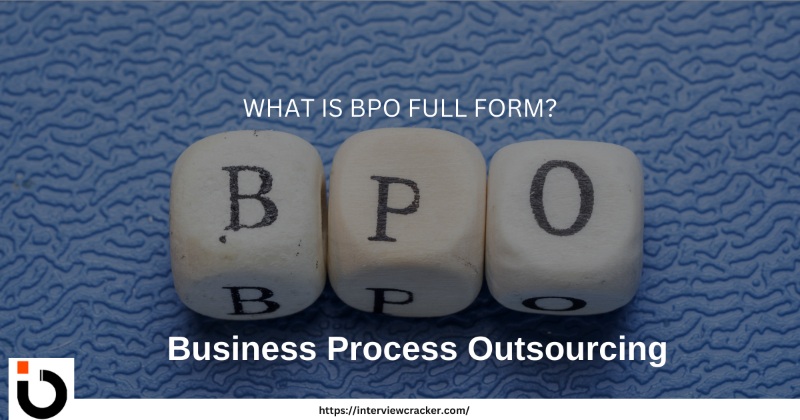Knowledge Process Outsourcing (KPO) is redefining how businesses tap into global talent for specialized, high-value tasks. Unlike traditional BPOs that handle routine operations like customer service or data entry, KPO dives deeper—leveraging expertise in fields like legal services, research, analytics, and finance. In this blog, we break down the key differences in the KPO vs BPO debate, explain why companies are shifting toward KPO, and highlight how this smarter outsourcing model is reshaping industries in 2025 and beyond.
Table of Contents
ToggleWhat is the Full Form of KPO?
KPO full for is knowledge process outsourcing. KPO stands for knowledge process outsourcing, that refers to the outsourcing of knowledge-based processes that require specialized expertise, analytical skills, and domain knowledge.
What is the Meaning of KPO ?
knowledge process outsourcing (KPO) refers to the outsourcing of knowledge-based processes or tasks to specialized service providers or third-party vendors. These processes typically require advanced analytical skills, domain expertise, and specialized knowledge.
In KPO, organizations delegate complex and high-value tasks such as research, data analysis, financial modeling, legal services, and market research to external entities. KPO providers often employ professionals with advanced degrees, technical skills, and industry-specific expertise to deliver high-quality services to their clients.
The main objectives of KPO include cost reduction, access to specialized skills and resources, increased operational efficiency, and the ability to focus on core business functions. KPO has become increasingly popular among businesses seeking to leverage external expertise while optimizing their internal operations.

Who is KPO Analyst?
A KPO Analyst (Knowledge Process Outsourcing Analyst) is a professional who performs specialized, knowledge-intensive tasks for clients, typically in areas that require domain expertise, analytical thinking, and decision-making skills.
Key Roles of a KPO Analyst:
These analysts are part of KPO services, which go beyond routine outsourcing (like BPO) to offer high-value services in areas such as:
Market Research & Analysis
Conducting competitive analysis, consumer insights, or industry forecasting.Financial Analysis
Evaluating investment opportunities, preparing financial models, and analyzing financial statements.Legal Process Support
Assisting with legal research, document review, and case law summaries.Data Analytics
Interpreting complex data sets, creating dashboards, and generating actionable business insights.Healthcare & Pharma Research
Supporting clinical research, medical data analysis, and regulatory compliance studies.
Skills Required by These KPO Analyst?
Domain expertise (e.g., finance, law, biotech, analytics)
Strong research and analytical skills
Excellent written and verbal communication
Proficiency in tools like Excel, SQL, Python (for data roles), or legal/financial databases
Where Do KPO Analysts Work?
KPO analysts typically work for:
KPO firms (e.g., Genpact, Evalueserve, WNS)
Global consulting companies
Financial institutions
Legal outsourcing firms
KPO Analyst's Salary
Here’s a breakdown of KPO Analyst salaries.
 United States
United States
Entry-Level: $50,000 – $70,000/year
Mid-Level (2–5 yrs): $70,000 – $90,000/year
Senior-Level: $90,000 – $120,000+/year
High-demand sectors like finance and data analytics can push compensation higher, especially in cities like New York or San Francisco.
 United Kingdom
United Kingdom
Entry-Level: £28,000 – £35,000/year
Mid-Level: £35,000 – £50,000/year
Senior-Level: £50,000 – £70,000+/year
Higher salaries are common in London and financial hubs.
 Canada
Canada
Entry-Level: CA$45,000 – CA$60,000/year
Mid-Level: CA$60,000 – CA$80,000/year
Senior-Level: CA$80,000 – CA$100,000+/year
Sectors like finance and pharma offer premium pay.
 Australia
Australia
Entry-Level: AU$55,000 – AU$70,000/year
Mid-Level: AU$70,000 – AU$90,000/year
Senior-Level: AU$90,000 – AU$120,000+/year
Sydney and Melbourne have the highest demand and pay.
 Germany
Germany
Entry-Level: €40,000 – €55,000/year
Mid-Level: €55,000 – €75,000/year
Senior-Level: €75,000 – €95,000+/year
Multinational KPO firms and financial hubs like Frankfurt offer better packages.
 India
India
Entry-Level: ₹3.5 LPA – ₹6 LPA/year
Mid-Level: ₹6 LPA – ₹10 LPA/year
Senior-Level: ₹10 LPA – ₹18 LPA+/year
What is BPO and KPO ?
BPO stands for Business Process Outsourcing, which involves outsourcing non-core operational tasks like customer service and data entry to third-party service providers.
KPO stands for Knowledge Process Outsourcing, where specialized knowledge-based tasks such as research, analysis, and financial services are outsourced to providers with advanced expertise.
Difference Between BPO and KPO | KPO Vs BPO
BPO and KPO are two different types of outsourcing services that organizations use to streamline their operations and enhance efficiency. Here’s a brief overview of each:
BPO (Business Process Outsourcing):
- BPO involves outsourcing non-core business processes and tasks to third-party service providers.
- These processes often include repetitive, administrative, or operational tasks such as data entry, customer service, technical support, payroll processing, and back-office operations.
- BPO services are typically more transactional and standardized compared to KPO.
- The primary goal of BPO is to reduce costs, improve scalability, and allow businesses to focus on core competencies by delegating routine tasks to specialized service providers.
KPO (Knowledge Process Outsourcing):
- KPO involves outsourcing knowledge-based processes that require specialized expertise, analytical skills, and domain knowledge.
- These processes are typically more complex and value-driven compared to BPO and may include services such as market research, data analysis, financial analysis, legal services, and research and development.
- KPO services require professionals with advanced degrees, technical skills, and industry-specific expertise to deliver high-quality insights and solutions.
- The primary goal of KPO is to access specialized knowledge and expertise, improve decision-making capabilities, and gain competitive advantages in the market.
In summary, while BPO focuses on outsourcing routine and repetitive tasks to achieve cost savings and operational efficiency, KPO focuses on outsourcing high-value, knowledge-intensive processes to access specialized expertise and drive strategic growth. Both BPO and KPO are important outsourcing models used by organizations to optimize their resources and improve overall performance.
What is KPO Industry?
The KPO industry involves the outsourcing of high-level knowledge-based tasks and processes to external service providers.
Unlike traditional Business Process Outsourcing (BPO), which typically focuses on routine, repetitive tasks, KPO involves outsourcing processes that require advanced analytical, technical, and specialized knowledge and skills. These may include research and development, data analysis, financial and investment analysis, market research, legal services, engineering design, and other complex tasks that demand expertise and domain knowledge.
KPO Process
The KPO (Knowledge Process Outsourcing) process typically involves the following steps:
- Client Requirement Analysis: Understanding the client’s needs and objectives for outsourcing.
- Data Collection: Gathering raw data from various sources based on the project scope.
- Data Analysis: Conducting in-depth analysis using specialized expertise to interpret the data.
- Knowledge Generation: Transforming analyzed data into actionable insights or solutions.
- Report Preparation: Compiling findings into comprehensive reports or deliverables.
- Quality Control: Ensuring accuracy, reliability, and adherence to standards through quality checks.
- Client Delivery: Presenting the final outcomes to the client for implementation or decision-making.
- Feedback and Improvement: Incorporating client feedback to refine the process for future projects.
Types of KPO Services
KPO services encompass a wide range of information analysis and collection methods, including:
- Intellectual Property Research (IPR) for patent filings,
- Equity research, business, and market analysis,
- Legal and medical services,
- Training, consulting, and research & development (R&D) in fields like biotechnology, pharmaceuticals, design, animation, and more.

KPO Analyst Job Description | What is KPO Job Profile?
A KPO (Knowledge Process Outsourcing) job description typically outlines the responsibilities, qualifications, and skills required for roles that involve handling complex knowledge-based tasks. Here’s a general outline of what you might find in a KPO job description:
- Job Title of KPO Executive:
Clearly states the position, such as “Financial Analyst,” “Market Research Associate,” or “Legal Researcher.”
- Job Responsibilities of KPO Executive:
Details the specific tasks and duties the role entails, which may include:
- Conducting in-depth research and analysis on various topics.
- Collecting and interpreting data to generate insights and recommendations.
- Providing financial modeling and analysis.
- Drafting reports, presentations, and other deliverables.
- Contributing to strategic decision-making processes.
- Ensuring compliance with relevant regulations and industry standards.
- Qualifications:
Specifies the education, experience, and skills required to perform the job effectively, which may include:
- Educational background in a relevant field such as finance, economics, business, law, or science.
- Previous experience in a similar role or industry.
- Proficiency in research methodologies, data analysis tools, and software applications.
- Strong analytical and critical thinking skills.
- Excellent communication and presentation abilities.
- Attention to detail and accuracy.
- Ability to work independently and collaboratively in a team environment.
- Adaptability and willingness to learn new concepts and technologies.
- Additional Requirements:
- Any specific certifications, licenses, or language proficiencies required for the role.
- Willingness to work flexible hours or shifts, especially for roles that involve serving clients in different time zones.
- Familiarity with industry-specific regulations, standards, and best practices.
- Company Overview:
- Provides information about the company, its values, culture, and mission.
- Highlights any unique aspects of the organization or opportunities for career growth and development.
- Application Process:
- Instructions for applying, including how to submit a resume, cover letter, and any other required documents.
- Details regarding the application deadline, interview process, and expected start date.
A well-crafted KPO job description helps attract qualified candidates and provides clarity about the role’s expectations and responsibilities within the organization.
Advantages of KPO
Like any business strategy, KPO has its own set of advantages and disadvantages:
- Access to Specialized Skills: KPO allows organizations to tap into specialized skills and expertise that may not be available in-house. This includes knowledge in areas such as research, analytics, financial analysis, and more.
- Cost Savings: Outsourcing knowledge processes to countries with lower labor costs can result in significant cost savings for organizations, especially in developed countries where labor costs are higher.
- Focus on Core Activities: By outsourcing knowledge processes, organizations can free up their internal resources to focus on core business activities, strategic planning, and innovation.
- Improved Efficiency: KPO providers often have streamlined processes and access to advanced technology, leading to improved efficiency and faster turnaround times for completing tasks.
- Scalability: KPO arrangements can be easily scaled up or down based on the organization’s requirements, allowing for flexibility in managing workloads and adapting to changing business needs.
Disadvantages/ Limitations of KPO:
- Quality Concerns: There may be concerns about the quality of work delivered by KPO providers, especially if there are language barriers, cultural differences, or inadequate training and supervision.
- Security Risks: Outsourcing knowledge processes may pose security risks, particularly if sensitive or confidential information is shared with third-party providers. Organizations need to ensure that proper security measures are in place to protect their data.
- Dependency on External Providers: Organizations may become overly dependent on external KPO providers, which can pose risks if the provider experiences disruptions in service, financial instability, or other issues.
- Loss of Control: Outsourcing knowledge processes means relinquishing some degree of control over the tasks being performed. This lack of control can lead to challenges in managing quality, meeting deadlines, and aligning with organizational objectives.
- Communication Challenges: Communication barriers, such as time zone differences, language differences, and cultural nuances, can complicate collaboration and hinder effective communication between the organization and the KPO provider.
In conclusion, while KPO offers several advantages such as access to specialized skills and cost savings, organizations must carefully weigh these benefits against potential drawbacks such as quality concerns, security risks, and loss of control before deciding to outsource knowledge processes.
KPO Analyst is IT or Non-IT?
A KPO Analyst can be both IT and non-IT, depending on the domain of specialization. Here’s a breakdown:
Non-IT KPO Analyst (Most Common)
These analysts work in knowledge-intensive areas that do not require coding or IT development. Common non-IT KPO roles include:
Financial Analyst (equity research, investment analysis)
Market Research Analyst
Legal Process Analyst
Healthcare/Pharma Analyst
Content/Technical Writer
Business Intelligence Analyst (non-technical tools)
🔹 Skills Required: Domain knowledge, Excel, PowerPoint, data interpretation, communication, research.
IT-Enabled KPO Analyst
These roles combine domain knowledge with IT or technical skills, especially in analytics, data science, or software platforms. Examples:
Data Analyst / Data Scientist
Business Analyst (with tools like SQL, Tableau, Power BI)
Software Quality Analyst (for research-driven testing)
AI/ML Research Support Roles
🔹 Skills Required: SQL, Python/R, BI tools, databases, data visualization, sometimes programming.
FAQs on Knowledge Process Outsourcing
What is KPO, and how does it differ from BPO?
KPO (Knowledge Process Outsourcing) involves outsourcing high-level tasks that require specialized expertise, such as data analysis, market research, or legal processes. Unlike Business Process Outsourcing (BPO), which focuses on repetitive tasks (like customer service or data entry), KPO demands advanced knowledge and skills in specific domains such as law, finance, and IT.
What services are typically outsourced through KPO?
KPO services include research and development (R&D), intellectual property research, equity research, legal and medical services, management consulting, and market research. These services often require a deep understanding of the industry and are usually outsourced to experts in these fields.
What are the benefits of KPO for businesses?
The primary benefits of KPO include cost savings, access to a global talent pool, scalability, and the ability to focus on core business activities. By outsourcing knowledge-intensive tasks, companies can free up internal resources, reduce operational costs, and leverage cutting-edge technologies provided by specialized KPO firms.
Why is KPO important for companies?
KPO helps businesses stay competitive by providing access to niche skills that may not be available internally. It allows companies to focus on their core operations while experts handle critical tasks, such as research, analysis, and innovation, which can drive growth and efficiency.
What are the risks associated with KPO?
Some of the risks include potential security concerns, as KPO often deals with sensitive information, and communication challenges, especially when outsourcing to offshore providers. Additionally, maintaining quality control can be difficult if the KPO partner does not meet the agreed-upon standards.
Full Form of BPO and KPO
Full Form of BPO and KPO are Business Process Outsourcing and Knowledge Process Outsourcing respectively


 United States
United States United Kingdom
United Kingdom Canada
Canada Australia
Australia Germany
Germany India
India



